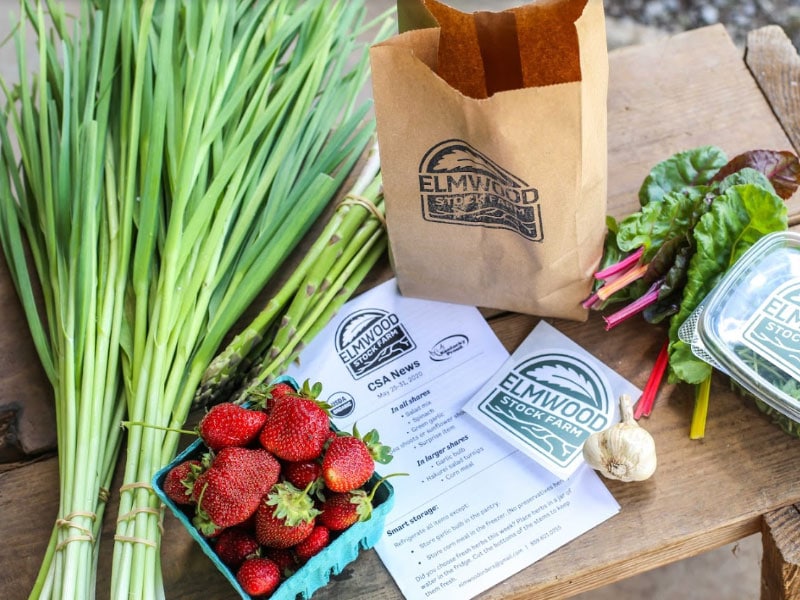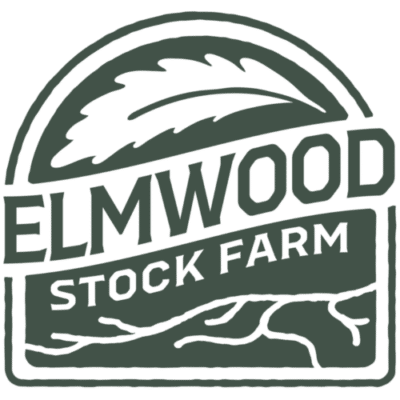We packed to the brim the maroon bread truck on that bright, sunny September Friday afternoon some 20-plus years ago, ready for a big day at the farmers market on Vine Street the next morning. And it was a big day—of raining cats and dogs; we brought most of the vegetables home. In those days, some were homegrown, some were purchased from other vendors, some off the produce terminal in Louisville where the semis transfer loads. Whatever the source, we had worked as hard as you can imagine to be at the market that morning and had little to show for it. We knew people would have been glad to have our stuff, but nobody in their right mind would have gone out in that weather. That lull gave us time to think and the motivation to act. We wanted to try something different.
The first big decision made that fateful day was to only sell what we grow, no more reselling something someone else grew, knowing or not knowing what chemicals were most likely used on it. Ann, John and I had been actively researching organic farming techniques from the patchwork of small growers around the region and knew that was the way we wanted to go. Critical-thinking consumers had been questioning how their food was being treated. We knew enough about farming to understand we were partway down the path to clean food already and that some crops would be easier to produce organically than others. (That’s still true today!)
Twenty years ago this year—in 2000—we signed up with the Kentucky Department of Agriculture’s organic program—then a whopping ten bucks, a farm visit and an affidavit saying we didn’t use any bad stuff—and staked our reputation on organic production. We now had someone looking over our shoulder in addition to that voice in our heads to stand tall and figure out how to farm alongside nature, without chemicals. This was before there was the highly regulated USDA National Organic Program we welcome today.
We certified organic a handful of Elmwood Stock Farm’s crops to start out. In a few years, we went all organic, even the sheep, under the watchful eye of regulators and inspectors. We welcome the third-party scrutiny, distinguishing ourselves as organic farmers on solid ground, biology on our side.

Seventeen years ago, we started our version of CSA with 44 members. This program has morphed over time, as those of you who have been with us for the duration know. Nowadays, we have hundreds of members. Our customers choose online from our offerings and pick up, or have dropped off, a bag of our seasonally appropriate organic veggies, eggs and meats that they reserved ahead of time. This is their share of the harvest produced on our Georgetown, Ky., farm. No matter the weather, no toiling in the fields required from CSA members, 2020 is a great time to be an Elmwood Stock Farm CSA shareholder.
Another development worth reflecting on is our vegetable-handling ability. Back in the day, our walk-in vegetable cooler was actually a plywood room enclosed in two bents of the tobacco barn with a concrete floor and an air conditioner. Soon after the start of our CSA program, we upgraded to a 10 by 10 walk-in cooler that we dismantled from an old grocery store. We added a 15-foot porch off the east side of the tobacco barn to store and handle crops as they came in from the fields. Ten or 12 years back, we gutted the heifer barn and converted it into a produce-packing shed, complete with two walk-in coolers, a walk-in freezer, offices, washing facilities, a kitchen, and not one but two restrooms. Customers’ commitment to sourcing their food from us bankrolled all of that—nothing I think a lender would consider. A few years ago, we enclosed said shed and put in heaters to accommodate our crew during the winter harvest now possible thanks to our high tunnels.

With Kelly’s design genius, we arrived at our new look. The stylized elm tree leaf represents the many plants we grow to nourish our community and our livestock. It also has the trappings of a turkey feather—another signature Elmwood Stock Farm item. Our name appears to be resting on the banks of the Elkhorn Creek, or maybe those lines are the deep roots we have developed some 20 years in. Somebody pointed out they could also be mycorrhizal fungi, the filamentous fungus that converts soil nutrients into plant nutrition. Whichever interpretation you like, we like the simple depiction of the complex natural relationships on the farm.
In keeping with our goal to get good food to good people effectively, the new website has launched—a platform to communicate with you about how your food is produced and to allow you to purchase Elmwood Stock Farm’s wholesome, organic food.
Not in our wildest dreams on that rainy Saturday a generation ago could we have imagined what we see today. It was just the three of us—Ann, John and me—when we took all this on. Now we have an awesome team to make the magic happen. With your embrace of efficient online technology, we have been able to grow even more good food for more good people. Whether you are a CSA member or online shopper, we are proud to be your family farmer, and our new brand shows it. Now that we are 20 years in, rain nor drought nor sleet nor snow can keep us from our mission.
Thanks, sincerely, for your support. —Mac Stone



Made with 
